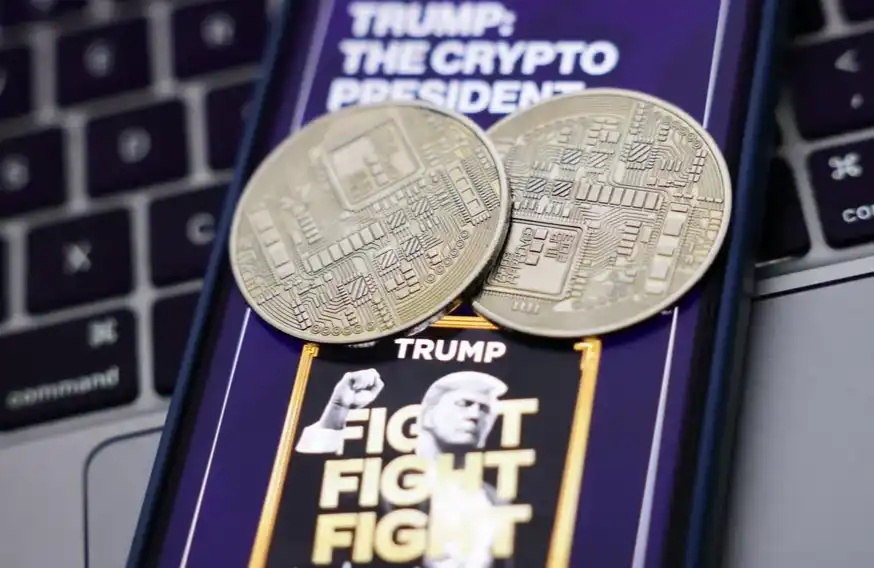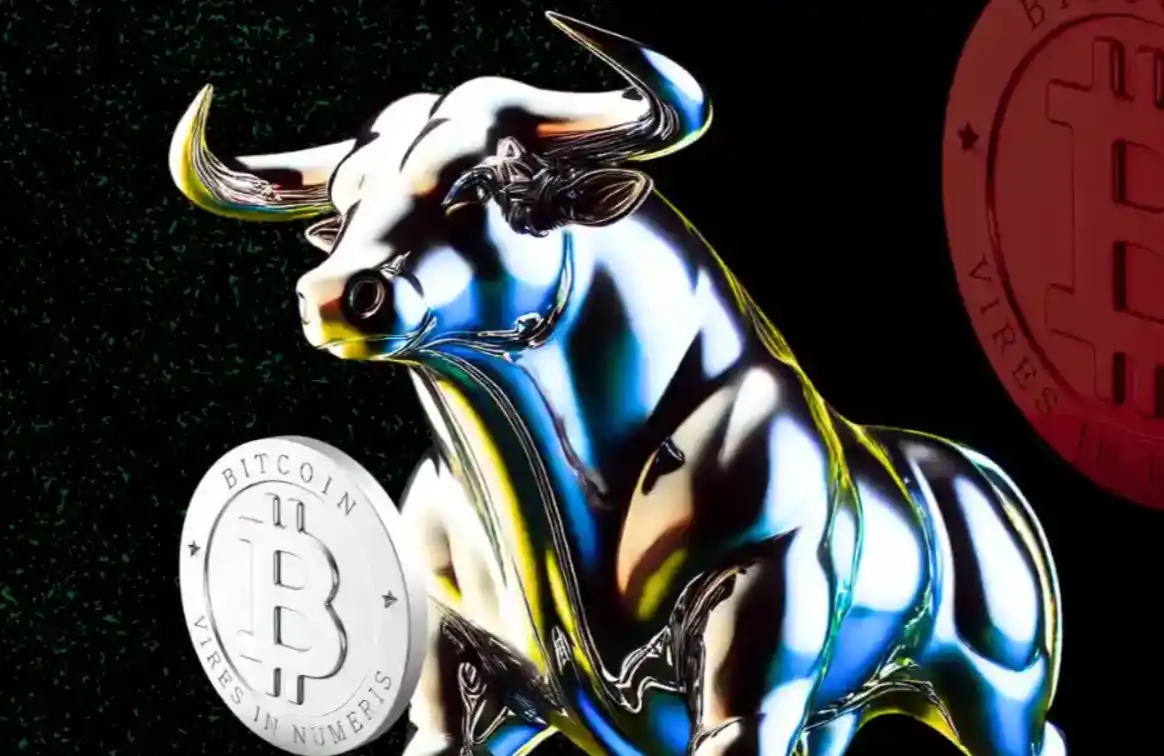Bitcoin Reserve Bill, if passed, may put an end to the cryptocurrency four-year boom-bust cycle
Original Title: A Bitcoin Reserve Act may end crypto's 4-year boom-bust cycle
Original Author: DANIEL RAMIREZ-ESCUDERO, Cointelegraph
Original Translation: Lawrence, MarsBit
The "Bitcoin Reserve Act" may break the halving cycle. Will this four-year cycle unfold in a different way? Are we entering a mythical supercycle?
Speculation is growing that incoming President Donald Trump may sign an executive order on his first day in office to announce the establishment of a Bitcoin Reserve, or legislate it during his term, leaving many wondering if this move could trigger a cryptocurrency supercycle.
Since Wyoming Senator Cynthia Lummis introduced the "Bitcoin Reserve Act" earlier this year, states like Texas and Pennsylvania have also proposed similar bills. Reports indicate that Russia, Thailand, and Germany are also considering their own proposals, further ramping up the pressure.
If governments worldwide are all rushing to secure their Bitcoin reserves, will we bid farewell to the cryptocurrency's perceived four-year price boom-bust cycle caused by the halving?
Cryptocurrency lending firm Nexo's analyst Iliya Kalchev believes that the "Bitcoin Reserve Act" could be a milestone moment for Bitcoin, indicating its "recognition as a legitimate global financial instrument."
"Every Bitcoin cycle has had a narrative trying to push the idea of 'this time is different.' The conditions have never been more ideal. Cryptocurrency has never had a crypto-friendly U.S. president controlling both the Senate and Congress."
Lummis' proposed 2024 Bitcoin bill would allow the U.S. government to introduce Bitcoin by purchasing 200,000 bitcoins annually over five years to be held as a reserve asset in its treasury, accumulating 1 million bitcoins, and holding them for at least 20 years.
Jack Mallers, Founder, and CEO of Strike, believes that Trump "might use an executive order to buy Bitcoin," but he warns that this does not equate to buying 1 million bitcoins.
The co-founder of the Satoshi Act Fund, a non-profit organization supporting policies in the United States that favor Bitcoin, Dennis Porter, also believes that Trump is exploring establishing a strategic Bitcoin reserve through an executive order.

Dennis Porter announced that Trump is researching an executive order regarding a strategic Bitcoin reserve. Source: Dennis Porter
So far, Trump's team has not directly confirmed the claims about the executive order. However, when asked on CNBC whether the U.S. would establish a BTC reserve similar to its oil reserve (which could imply legislation), Trump responded, "Yes, I think we will."
Nevertheless, executive orders lack stability as subsequent presidents often overturn such orders. The only way to ensure the long-term future of a strategic Bitcoin reserve is through legislation supported by a majority.
With the Republican Party having dominance in Congress and only a slim majority in the Senate, Bitcoin supporters within the Trump team have ample reason to push for the Lummis bill. However, as long as a few Republican defectors are influenced by progressives' anger, they may block the bill, believing it hands government wealth to Bitcoin holders.


Results of the U.S. Senate and House elections post-2024. Source: AP
Avoid Comparing This Cycle to Previous Cycles
Earlier this month, Alex Krüger, founder of the macro digital asset advisory firm Asgard Markets and an economist, stated that the election results made him believe that "Bitcoin is very likely entering a supercycle."
He believes Bitcoin's unique situation can be compared to gold. After U.S. President Richard Nixon announced the U.S. abandoning the gold standard, ending the Bretton Woods system, the price of gold surged from $35 per ounce in 1971 to $850 in 1981.
Krüger does not rule out the possibility of Bitcoin experiencing a bear market like in the past. However, he urges cryptocurrency investors to "avoid comparing this cycle to previous cycles" as this time may be different.
Trump's actions to date undoubtedly indicate that government policy will move in a favorable direction. After Gary's departure, he nominated Paul Atkins, who supports cryptocurrency and regulatory relaxation, as the chairman of the U.S. Securities and Exchange Commission.
He also nominated cryptocurrency supporter Scott Bessent as Treasury Secretary and appointed former PayPal COO David Sacks as the AI and cryptocurrency czar, responsible for creating a clear legal framework for the cryptocurrency industry.
The Super Cycle Theory Has Never Yielded Super Results
However, the concept of "this time is different" has appeared in every past Bitcoin bull market, each time with a narrative around mainstream and institutional adoption as support.
During the 2013-2014 bull market, the Super Cycle Theory received support for the theory that Bitcoin would gain international attention as an alternative asset to fiat currency.
During the 2017-2018 cycle, the rapid price increase was seen as a sign of mainstream financial adoption and the beginning of Bitcoin's mainstream acceptance, with institutional interest expected to flourish.
During the 2020-2021 cycle, when tech companies like MicroStrategy, Square, and Tesla entered the Bitcoin market, they believed that many tech-related companies would follow suit.

Bitcoin's price performance has reached peaks and valleys in the early cycles. Source: Caleb & Brown
However, in each cycle, the narrative of the Super Cycle has not materialized, ultimately leading to price crashes, supporters folding, and entering a prolonged bear market. Three Arrows Capital co-founder Su Zhu is the most famous supporter of the 2021 Super Cycle Theory. He believes that even without a sustained bear market, the cryptocurrency market will remain in a bull market, and Bitcoin will eventually peak at $5 million.
3AC did indeed borrow money, as if the Super Cycle Theory were true. When it was eventually liquidated, the cryptocurrency market value plummeted by nearly 50% due to this news, and the collapse led to lenders such as Voyager Digital, Genesis Trading, and BlockFi filing for bankruptcy and facing financial difficulties.
Therefore, the supercycle is a dangerous theory and should not be used to gamble your life savings.
For Chris Brunsike, a partner at the venture capital firm Placeholder and former Blockchain Product Lead at ARK Invest, the Bitcoin supercycle is just a myth.
The supercycle is undoubtedly a collective illusion. Nevertheless, considering the support of the U.S. President, the U.S. election results have provided unprecedented and extremely bullish conditions for Bitcoin, and the U.S. President seems to be fulfilling his promise to support cryptocurrency, including never selling the Bitcoin held in the U.S. reserves.
Potential Global Domino Effect
If the "Bitcoin Reserve Act" is passed, it could trigger a global race of holding Bitcoin, with other countries following suit to avoid falling behind.
George S. Georgiades is a lawyer who, in 2016, transitioned from providing financing advice to Wall Street companies to serving the cryptocurrency industry. He told Cointelegraph that the enactment of the "Bitcoin Reserve Act" "will mark a turning point in global Bitcoin adoption" and may "prompt other countries and private institutions to follow suit, driving broader adoption and enhancing market liquidity."
Basel Ismail, CEO of the crypto investment analysis platform Blockcircle, agrees and states that approval would be "one of the most exciting events in crypto history" as it would "catalyze a race to acquire as much Bitcoin as possible."
Other countries will have no say; they will be forced to act. Either pivot, compete, or perish. He believes that "the majority of the G20 countries, the most powerful and economically advanced countries in the world, will follow suit and build their reserves."

Seasoned cryptocurrency investor and Bitcoin educator Chris Dunn told Cointelegraph that this FOMO-driven frenzy of countries racing to purchase may fundamentally change the current cryptocurrency market cycle.
If the U.S. or other major economic powers start accumulating, Bitcoin could trigger FOMO, potentially forming a market cycle and supply-demand dynamics that we have never seen before.
OKX Exchange CEO Hong Fang told Cointelegraph that other countries may already be prepared for such a competition.
Game theory likely has already quietly come into play.
However, Ismail noted that most Bitcoin purchases will be made through over-the-counter brokers and settled in large transactions, so "it may not have a direct impact on Bitcoin's price," but it will create a persistent demand force that will ultimately drive up Bitcoin's price.
A New Wave of Cryptocurrency Investors Could Change the Dynamics of the Cryptocurrency Market
If countries become market buyers, the Bitcoin market could undergo a fundamental change. A new wave of investors from global financial centers will enter the cryptocurrency market, altering market dynamics, psychology, and reactions to certain events.
Nexo analyst Kalchev stated that while this legislation may disrupt Bitcoin's well-known four-year halving cycle, it is still speculative, but several dynamic changes may occur.
Bitcoin is a unique market, largely driven by retail buying and selling, with price highly responsive to market psychology. The emergence of new types of investors may change market dynamics and alter historical cycles.
Ismail believes that "the behavior of stock market investors will be different from" the overreacting retail investors. Institutional investors have substantial funds and advanced risk management strategies, allowing them to treat Bitcoin differently from retail investors.
Over time, Wall Street's participation will help create a more stable, less reactive market environment. Stability is another way of saying reduced volatility, logically meaning that bear markets will not be as intense as in past cycles.
Georgiadis believes that "the price cycle will continue," but "sustained demand from large-scale buyers, such as the United States, can reduce volatility and the fluctuations we have seen in past cycles."
At the same time, Ismail points out that Bitcoin's market performance has already deviated from the previous four-year cycle. Bitcoin's price in the current cycle dropped below the previous cycle's all-time high (ATH), "everyone thought this was impossible," and then before the formal halving, Bitcoin set a new ATH.
The Four-Year Cycle Has Been Repeatedly Exposed and Broken
So far, Bitcoin has only gone through four halvings, with nearly thirty halving events yet to occur. "It is hard to imagine all of these halvings following the same predictable four-year pattern," Kalchev said, especially as broader macroeconomic and political factors (such as central bank policies and regulatory developments) have a greater influence on Bitcoin's market trends.
Kalchev believes that Bitcoin's price will no longer be as influenced by internal mechanisms such as halving but more by external factors like institutional adoption and geopolitical events.
Welcome to join the official BlockBeats community:
Telegram Subscription Group: https://t.me/theblockbeats
Telegram Discussion Group: https://t.me/BlockBeats_App
Official Twitter Account: https://twitter.com/BlockBeatsAsia


 Forum
Forum OPRR
OPRR Finance
Finance
 Specials
Specials
 On-chain Eco
On-chain Eco
 Entry
Entry
 Podcasts
Podcasts
 Data
Data

 Summarized by AI
Summarized by AI




